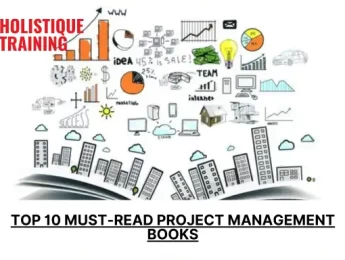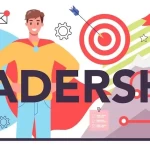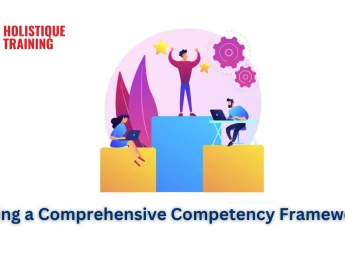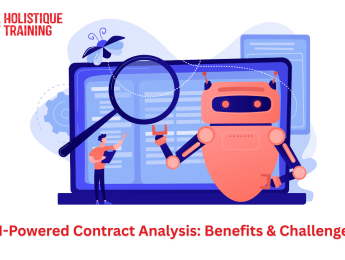- Table of Contents
- Why Project Management Is Essential
- "Project Management Absolute Beginner's Guide" by Greg Horine
- “A Guide to the Project Management Body of Knowledge (PMBOK® Guide)”
- Key Highlights and Significant Ideas:
- "The Fast Forward MBA in Project Management" by Eric Verzuh
- Key Highlights and Significant Ideas:
- "Project Management for the Unofficial Project Manager" by Kory Kogon, Suzette Blakemore, and James Wood offers
- Key Highlights and Significant Ideas:
- "Making Things Happen: Mastering Project Management" by Scott Berkun
- Key Highlights and Significant Ideas:
- "The Lazy Project Manager: How to be Twice as Productive and Still Leave the Office Early" by Peter Taylor
- Key Highlights and Significant Ideas:
- "Brilliant Project Management: What the Best Project Managers Know, Do and Say" by Stephen Barker and Rob Cole
- Key Highlights and Significant Ideas:
- "Project Management Lite: Just Enough to Get the Job Done...Nothing More" by Juana Clark Craig
- Key Highlights and Significant Ideas:
- "The Project Manager's Guide to Mastering Agile: Principles and Practices for an Adaptive Approach" by Charles G. Cobb
- Key Highlights and Significant Ideas:
- The "HBR Guide to Project Management" by the Harvard Business Review
- Key Highlights and Significant Ideas:
Introduction
Project management is essential for aligning strategic goals with tangible outcomes, ensuring efficiency, and driving success in modern business environments. It involves coordinating the planning, execution, and delivery of projects to meet organizational objectives. This article explores the significance of project management, drawing insights from key books in the field. These resources, ranging from foundational frameworks to innovative approaches, equip professionals with the necessary tools and knowledge to manage projects effectively.
Why Project Management Is Essential
Project management is critical for aligning projects with an organization's strategic goals, optimizing resource use, and enhancing risk management to navigate potential issues smoothly. It ensures clear communication, leading to better decision-making and minimizing misunderstandings. Through structured processes, it not only meets customer expectations, improving satisfaction and reputation, but also efficiently manages change and encourages continuous learning from each project. Project management guarantees projects are completed on time and within budget, fostering a collaborative environment that boosts team morale and productivity.

Here are 10 project management books that are highly recommended for beginners. These books cover foundational principles, methodologies, and practical advice to help you navigate the complex world of project management:
"Project Management Absolute Beginner's Guide" by Greg Horine
It Is an accessible, comprehensive guide tailored for those new to project management. It breaks down complex concepts into understandable parts, covering the fundamentals, methodologies, tools, and soft skills necessary for effective project execution.
Here are the key highlights
- Foundational Principles: It introduces the basics of project management, emphasizing clear objectives, planning, and communication.
- Project Life Cycle: The book walks through the project management life cycle, offering practical advice for each phase.
- Practical Tools and Techniques: Readers learn about essential tools like work breakdown structures and risk management plans.
- Methodologies: The guide compares Agile and traditional project management approaches, helping readers choose the right one based on project needs.
- Risk Management: It stresses the importance of early identification and mitigating risks.
- Stakeholder Engagement: Strategies for effective stakeholder communication and relationship building are discussed.
- Communication and Leadership: The book underscores the importance of communication and leadership in managing teams and ensuring project success.
Greg Horine's guide is notable for its practical insights and real-world applicability. It makes project management approachable for beginners while also offering value to experienced professionals seeking a refresher. It's an essential resource for anyone looking to succeed in project management.
“A Guide to the Project Management Body of Knowledge (PMBOK® Guide)”
published by the Project Management Institute (PMI) is the definitive reference for project management professionals worldwide. Serving as a comprehensive framework of best practices, the PMBOK® Guide is instrumental in standardizing project management processes and terminologies across industries. It's not just a book but a guide that has been meticulously refined over numerous editions to reflect the latest project management methodologies and practices.
Key Highlights and Significant Ideas
1. The Process Groups
The PMBOK® Guide organizes project management into five process groups: Initiating, Planning, Executing, Monitoring and Controlling, and Closing. This structure provides a high-level view of how projects progress from start to finish, emphasizing the importance of each phase in the project lifecycle.
2. The Knowledge Areas
The guide outlines ten knowledge areas integral to effective project management, including Project Integration, Scope, Schedule, Cost, Quality, Resource, Communication, Risk, Procurement, and Stakeholder Management. Each area covers a specific aspect of project management and details processes and practices that contribute to successful project delivery.
3. Integration of Agile Practices
Recent editions of the PMBOK® Guide have incorporated insights on Agile methodologies, recognizing the growing adoption of Agile practices in project management. This integration underscores the guide's adaptability to evolving project management landscapes and its relevance to various project types and environments.
4. Emphasis on the Project Manager's Role
The guide highlights the project manager's central role in navigating the complexities of project delivery. It covers the required skills and competencies, including leadership, negotiation, and conflict resolution, reinforcing the project manager's responsibility in guiding the team and managing stakeholder expectations.
5. Focus on Tailoring
Understanding that no one-size-fits-all approach exists in project management, the PMBOK® Guide advocates for tailoring its processes and methodologies to fit the unique needs of each project. This flexibility allows project managers to apply the guide's principles effectively across diverse project scenarios.
6. Project Environment and Governance
The guide addresses the broader context in which projects operate, including organizational structures, governance frameworks, and the project environment. This comprehensive view ensures that project managers consider internal and external factors impacting project success.
7. Ethics and Professional Conduct
The PMBOK® Guide underscores the importance of ethics and professional conduct in project management. It sets forth a code of ethics and professional conduct that PMI members and credential holders must adhere to, promoting integrity and professionalism in the field.
"The Fast Forward MBA in Project Management" by Eric Verzuh
is a highly regarded book that offers a concise yet comprehensive overview of project management principles and practices. Aimed at both new and experienced project managers, this book combines practical tools, best practices, and solid theoretical concepts to equip readers with the skills needed to manage projects effectively in any industry. It stands out for its accessible writing style and its focus on real-world applications of project management concepts.
Key Highlights and Significant Ideas
1. Practical Project Management Framework
Verzuh presents a clear, actionable framework for managing projects that can be applied across various industries. This framework emphasizes the importance of defining project goals, planning, execution, and monitoring progress, providing readers with a roadmap for project success.
2. Comprehensive Tools and Techniques
The book is rich in tools and techniques for every aspect of project management, from scheduling and budgeting to risk management and stakeholder engagement. Verzuh explains how to use these tools in practice, offering templates and examples that readers can adapt for their projects.
3. Agile and Traditional Methodologies
Recognizing modern projects' diverse needs, Verzuh covers traditional project management methodologies and Agile approaches. He discusses how to choose the right methodology for a project and how to implement it effectively, providing insights into blending methodologies when necessary.
4. Emphasis on Leadership and Communication
"The Fast Forward MBA in Project Management" highlights the critical role of leadership skills and effective communication in project management. Verzuh offers strategies for leading teams, managing stakeholders, and ensuring clear, consistent communication throughout the project lifecycle.
5. Focus on Real-World Application
One of the book's strengths is its focus on the practical application of project management concepts. Verzuh includes case studies and real-world examples to illustrate how the principles and tools discussed can be applied to solve common project challenges.
6. Project Management Software and Technology:
The book addresses the impact of technology on project management, including an overview of project management software tools available to practitioners. Verzuh guides the selection and use of technology to enhance project planning, execution, and monitoring.
7. Preparing for Project Management Certification:
For those interested in obtaining project management certifications, such as the PMP® (Project Management Professional), Verzuh offers tips and insights on preparing for the exam, making the book a valuable resource for certification candidates.
"Project Management for the Unofficial Project Manager" by Kory Kogon, Suzette Blakemore, and James Wood offers
a refreshing take on project management, targeting individuals who manage projects without formal training in the discipline. Recognizing that project management responsibilities often fall on the shoulders of those who may not officially hold the title of a project manager, this book provides a straightforward, practical guide to managing projects effectively, even without prior project management experience.
Key Highlights and Significant Ideas
1. Project Management Fundamentals
The authors start with the basics, introducing readers to the fundamental principles of project management. They emphasize that effective project management is about leadership, teamwork, and communication, crucial skills regardless of one’s official job title.
2. Five Key Processes of Project Management
The book outlines five essential processes for successful project management: initiating, planning, executing, monitoring and controlling, and closing. The authors provide actionable advice and real-world examples for each process, making these concepts accessible to beginners.
3. Importance of People Skills
One of the book's central themes is the importance of people skills in project management. The authors argue that leading and communicating effectively with team members, stakeholders, and sponsors is just as important as technical project management skills.
4. The Role of Personal Productivity
The book highlights the connection between personal productivity and effective project management. It offers tips on time management, prioritization, and goal setting and shows how these personal productivity practices can improve overall project outcomes.
5. Practical Tools and Techniques
"Project Management for the Unofficial Project Manager" is packed with practical tools and techniques that readers can apply immediately. This includes templates for project plans, risk management strategies, and communication plans, all designed to be user-friendly for those new to project management.
6. Emphasis on Accountability and Ownership
The authors stress the importance of accountability and ownership throughout the project lifecycle. They provide strategies for creating a culture of accountability within the project team, ensuring team members feel personally invested in the project’s success.
7. Navigating Challenges and Conflicts
Recognizing that challenges and conflicts are inevitable in any project, the book guides navigating these difficulties. It includes tips on conflict resolution, managing changes, and keeping the project on track despite obstacles.
"Making Things Happen: Mastering Project Management" by Scott Berkun
is a pragmatic and insightful guide that delves deep into the art and science of project management. Unlike traditional project management books focusing heavily on methodologies and tools, Berkun's work emphasizes the human elements, leadership qualities, and decision-making processes crucial for successful project execution. Drawing from his extensive experience managing big projects at Microsoft and other organizations, Berkun offers a blend of philosophy, anecdotes, and practical advice that resonates with both new and seasoned project managers.
Key Highlights and Significant Ideas
1. The Philosophy of Project Management
Berkun sets the stage by exploring the philosophy behind project management, arguing that understanding the "why" is as crucial as mastering the "how." He encourages readers to think critically about their projects' goals, constraints, and contexts to make informed decisions.
2. Leadership and Team Dynamics:
Much of the book is dedicated to leadership and managing team dynamics. Berkun emphasizes that effective project management is inherently a leadership role, requiring the ability to motivate, inspire, and guide a diverse team towards a common goal. He discusses strategies for building trust, fostering collaboration, and navigating the challenges of team dynamics.
3. Decision Making and Problem Solving:
"Making Things Happen" illuminates the importance of decision-making and problem-solving in project management. Berkun provides insights into making tough decisions under uncertainty, prioritizing tasks, and developing a problem-solving mindset that anticipates challenges and proactively seeks solutions.
4. Communication Strategies:
The book highlights communication as the lifeblood of project management. Berkun offers practical advice on crafting clear communication plans, conducting effective meetings, and ensuring that information flows smoothly among stakeholders, team members, and sponsors.
5. Risk Management:
Berkun addresses the critical aspect of risk management, outlining methods for identifying potential risks, assessing their impact, and developing mitigation strategies. He advocates for a balanced approach to risk, encouraging project managers to embrace uncertainty as an inherent part of the project lifecycle.
6. Learning from Success and Failure:
A unique aspect of the book is its focus on learning from both success and failure. Berkun encourages readers to reflect on their experiences, extract valuable lessons, and apply them to future projects. He stresses the importance of continuous learning and improvement in the field of project management.
"The Lazy Project Manager: How to be Twice as Productive and Still Leave the Office Early" by Peter Taylor
introduces a unique and engaging approach to project management that challenges conventional wisdom. Rather than promoting endless work hours and micromanagement, Taylor advocates for working smarter, not harder. His philosophy is built around the principle of 'productive laziness,' which emphasizes the importance of efficiency and focus on activities that truly add value to a project. Taylor combines humour with practical advice to offer readers strategies for becoming more effective project managers while also improving their work-life balance.
Key Highlights and Significant Ideas
1. The Power of Productive Laziness
Taylor introduces the concept of productive laziness, which encourages project managers to focus their efforts on the most critical aspects of a project while avoiding unnecessary work. This approach is about being strategically lazy - putting in the effort where it matters most and conserving energy elsewhere.
2. The ‘Art of Delegation’
A key tenet of Taylor's philosophy is mastering the art of delegation. He argues that delegating effectively frees up the project manager's time and empowers team members by entrusting them with responsibilities and decision-making authority. Taylor provides guidance on how to delegate tasks efficiently while ensuring accountability.
3. Focusing on the Critical Stages of a Project
Taylor emphasizes that the most effort should be applied during a project's initial and final stages, which he refers to as the 'lazy project manager's s-curve.' The idea is to invest heavily in planning and setting up the project for success from the start and then again at the end to ensure a smooth closeout and handover. The middle phase of the project should require less intensive management, assuming the initial setup was done correctly.
4. Effective Communication
"The Lazy Project Manager" underscores the importance of clear, concise, and effective communication. Taylor highlights that a project manager's success hinges on their ability to communicate goals, expectations, and feedback within the project team and with stakeholders.
5. Prioritizing Work-Life Balance
Taylor advocates for maintaining a healthy work-life balance, arguing that a well-rested and well-rounded project manager is more effective and productive. He suggests practical ways to manage time efficiently, allowing project managers to leave the office early without sacrificing the success of their projects.
6. Learning from Experience
Taylor encourages project managers to learn from every project experience, both successes and failures. He stresses the value of reflective practice as a tool for continuous improvement in project management skills and techniques.
"Brilliant Project Management: What the Best Project Managers Know, Do and Say" by Stephen Barker and Rob Cole
is a guide that distils the essence of exceptional project management into practical advice and actionable insights. Aimed at both novice and experienced project managers, the book is a treasure trove of wisdom, focusing on the skills, techniques, and attitudes that distinguish the best project managers from the rest. Through a combination of expert knowledge and real-world examples, Barker and Cole provide readers with a roadmap to mastering the complexities of project management.
Key Highlights and Significant Ideas
1. Essential Skills for Project Managers
The authors emphasize that successful project management goes beyond technical know-how, highlighting the importance of soft skills such as leadership, communication, and negotiation. These skills are crucial for managing teams, dealing with stakeholders, and navigating the challenges that arise during projects.
2. Practical Problem-Solving Strategies
"Brilliant Project Management" offers strategies for solving common project management problems, from scope creep and budget overruns to team conflicts and scheduling issues. Barker and Cole advocate for proactive problem-solving and the importance of adaptability, encouraging project managers to think on their feet and find creative solutions.
3. Effective Communication Techniques
The book underscores the significance of effective communication in project management, providing tips on communicating project goals, updates, and changes clearly and persuasively. The authors also discuss the value of active listening and feedback in building trust and ensuring project success.
4. Risk Management and Contingency Planning
Recognizing the unpredictable nature of projects, Barker and Cole delve into risk management and contingency planning. They offer guidance on identifying potential risks, assessing their impact, and developing plans to mitigate or address them, ensuring that projects remain on track despite uncertainties.
5. Maximizing Team Performance
"Brilliant Project Management" explores strategies for maximizing team performance, including motivating team members, fostering a collaborative environment, and leveraging individual strengths. The authors highlight the role of the project manager in creating a positive, productive team dynamic.
6. Stakeholder Engagement and Management
The book addresses the critical aspect of stakeholder management, offering insights into identifying key stakeholders, understanding their expectations, and engaging them throughout the project lifecycle. Effective stakeholder management is presented as key to project approval and support.
7. Learning from Experience
Barker and Cole stress the importance of learning from every project, advocating for a reflective approach to project management. They encourage project managers to analyze project outcomes, document lessons learned, and apply these insights to future projects for continuous improvement.
"Project Management Lite: Just Enough to Get the Job Done...Nothing More" by Juana Clark Craig
offers a streamlined approach to project management, particularly aimed at those who manage projects without the formal title or extensive training in project management methodologies. Craig’s book stands out for its simplicity and practicality, distilling the essence of project management into accessible, bite-sized pieces. This approach is ideal for small- to medium-sized projects or individuals more informally stepping into project management roles.
Key Highlights and Significant Ideas
1. Simplifying Project Management
Craig's primary objective is simplifying project management, stripping away the complexity and jargon often associated with formal methodologies. She focuses on the core elements that are truly necessary for successful project execution, making the process more approachable for beginners and non-traditional project managers.
2. The Four-Phase Project Management Process
The book outlines a straightforward, four-phase process for managing projects: Define, Plan, Execute, and Close. Each phase is described in clear, concise terms, with actionable steps that readers can easily follow to progress their projects from inception to completion.
3. Practical Tools and Templates
"Project Management Lite" is packed with practical tools and templates that readers can use to manage their projects more effectively. From project charter templates to simple planning checklists, Craig provides just enough structure to guide project managers without overwhelming them with unnecessary detail.
4. Focus on Results, Not Bureaucracy
Craig emphasizes the importance of focusing on results rather than getting bogged down in bureaucratic processes. She advocates for a pragmatic approach to project management, which aims to deliver the project successfully with the minimum necessary overhead.
5. Risk Management Made Easy
The book offers a simplified approach to risk management, encouraging project managers to identify potential issues early on and develop straightforward strategies to mitigate them. Craig’s method is accessible and practical, making risk management an integral yet uncomplicated part of the project management process.
6. Effective Communication Strategies
Recognizing the critical role of communication in project management, Craig provides tips for effective communication with team members, stakeholders, and sponsors. She stresses the value of clear, concise, and frequent communication to keep everyone aligned and informed throughout the project.
7. Learning from Every Project
Craig encourages project managers to reflect on their experiences and learn from each project. She suggests simple ways to capture lessons learned and apply them to future projects, fostering a culture of continuous improvement.
"The Project Manager's Guide to Mastering Agile: Principles and Practices for an Adaptive Approach" by Charles G. Cobb
is an essential resource for project managers looking to navigate the transition from traditional project management methodologies to Agile practices. Recognizing the growing adoption of Agile in industries beyond software development, Cobb offers a comprehensive exploration of Agile principles and how they can be integrated into various project environments. The book is tailored for project managers familiar with traditional methods, providing them with the knowledge and tools to effectively adopt an Agile mindset and methodologies.
Key Highlights and Significant Ideas
1. Agile Principles and Mindset
Cobb begins by exploring the core principles of Agile, emphasizing the importance of flexibility, customer collaboration, and responsiveness to change. He then discusses the Agile mindset and how it differs from traditional project management approaches, highlighting the shift from a plan-driven to a value-driven delivery process.
2. Transitioning to Agile
The book focuses heavily on the transition from traditional to Agile methodologies. Cobb provides practical advice for project managers on navigating this change, including assessing the organization’s readiness, addressing resistance, and fostering an Agile culture.
3. Agile Frameworks and Methodologies
Cobb explores various Agile frameworks, including Scrum, Kanban, and Lean, explaining their key practices, roles, and ceremonies. He offers insights into how these frameworks can be adapted and combined to suit different project types and organizational contexts.
4. Managing Agile Projects
The book delves into the specifics of managing projects using Agile methodologies. Topics covered include backlog management, iteration planning, tracking progress, and facilitating Agile ceremonies. Cobb emphasizes the project manager's role as a facilitator and coach rather than a traditional command-and-control leader.
5. Agile Estimation and Planning
Cobb addresses one of the key challenges in Agile project management: estimation and planning in an uncertain environment. He discusses techniques for estimating work, planning iterations, and managing stakeholder expectations regarding scope and timelines.
6. Scaling Agile
For organizations looking to scale Agile practices beyond individual teams, Cobb provides guidance on frameworks for scaling Agile, such as SAFe (Scaled Agile Framework) and LeSS (Large-Scale Scrum). He discusses the challenges of scaling and offers strategies for maintaining Agile principles at scale.
7. Agile Tools and Technologies
The book reviews tools and technologies that support Agile project management, from digital boards for tracking work to collaboration tools that facilitate team communication. Cobb emphasizes selecting tools that enhance, rather than hinder, Agile practices.
8. Navigating Challenges and Pitfalls
Cobb candidly addresses common challenges and pitfalls encountered in Agile transformations, including issues with team dynamics, managing distributed teams, and aligning Agile projects with business goals. He offers strategies for overcoming these challenges and ensuring the success of Agile initiatives.
The "HBR Guide to Project Management" by the Harvard Business Review
is a compilation of expert insights and practical advice to enhance project management's effectiveness in any organizational context. This guide consolidates articles from renowned leaders, thinkers, and practitioners in the field of project management, offering a multifaceted view on tackling the challenges associated with managing projects. From initiating and planning projects to executing, monitoring, and closing them successfully, this guide covers essential strategies and tools that project managers can employ to achieve project goals efficiently.
Key Highlights and Significant Ideas
1. Project Initiation and Planning
The guide underscores the importance of a solid start, emphasizing thorough planning and clear goal-setting. It discusses strategies for defining project scope, objectives, and deliverables, ensuring that projects are aligned with business goals and have a clear roadmap from the outset.
2. Building and Leading Effective Teams
Recognizing the pivotal role of teamwork in project success, the guide offers insights into assembling and leading high-performing project teams. It covers topics such as selecting the right team members, fostering collaboration, and motivating them to achieve their best.
3. Managing Stakeholder Expectations
The guide provides valuable advice on identifying and engaging stakeholders throughout the project lifecycle. It highlights the importance of effective communication and stakeholder management strategies to navigate differing expectations and ensure alignment with project objectives.
4. Agile and Traditional Methodologies
The guide presents both Agile and traditional project management methodologies, helping readers understand the strengths and applications of each approach. It also offers guidance on selecting the right methodology based on the project's characteristics and the organizational environment.
5. Risk Management
The "HBR Guide to Project Management" addresses the critical aspect of risk management, offering techniques for identifying, assessing, and mitigating risks. It stresses the importance of proactive risk management in minimizing project uncertainties and avoiding potential pitfalls.
6. Monitoring Progress and Making Adjustments
The guide discusses the importance of continuously monitoring project progress against plans and making necessary adjustments. It covers tools and metrics for tracking performance, managing changes, and ensuring that projects remain on track towards their goals.
7. Closing Projects Successfully
Another focal point of the guide is closing projects effectively. It advises conducting post-project evaluations, capturing lessons learned, and ensuring project outcomes are properly documented and communicated.
8. Navigating Complex Projects
The guide offers strategies for breaking down complexities, managing multiple dependencies, and ensuring successful delivery through meticulous planning and execution for projects that are especially complex or challenging.
Book Title | Highlighted Ideas |
Project Management Absolute Beginner's Guide | Simplifying complex concepts, practical tools for immediate application. |
A Guide to the Project Management Body of Knowledge (PMBOK® Guide) | Standardising project management practices, introducing Agile methodologies. |
The Fast Forward MBA in Project Management | Blending practical tools with theoretical concepts, focus on real-world application. |
Project Management for the Unofficial Project Manager | Importance of soft skills, pragmatic approach to project management. |
Making Things Happen: Mastering Project Management | Emphasis on leadership and decision-making, learning from experience. |
The Lazy Project Manager | Productive laziness principle, effective delegation, and prioritisation. |
Brilliant Project Management | Essential skills and problem-solving strategies, navigating common project challenges. |
Project Management Lite: Just Enough to Get the Job Done...Nothing More | Streamlining project management to essentials, practical tools and templates. |
The Project Manager's Guide to Mastering Agile | Integrating Agile practices in project management, managing transitions. |
HBR Guide to Project Management | Expert insights on tackling project challenges, comprehensive strategies and tools. |
Table 1: Essential Highlights from Key Project Management Books
Conclusion
In conclusion, project management is indispensable for ensuring projects align with organizational goals, utilizing resources efficiently, and navigating through risks and changes effectively. It ensures clear communication, meets customer expectations, and fosters a collaborative team environment. The highlighted project management books provide a wealth of knowledge, from foundational principles and methodologies to practical advice for both novices and experienced professionals. Each book, with its unique perspective, offers valuable insights into achieving project success, highlighting the importance of leadership, communication, risk management, and continuous improvement in the project management process. Whether you're seeking to master Agile practices, adopt a more streamlined approach, or enhance your leadership skills, these resources are essential for anyone looking to excel in project management.


























